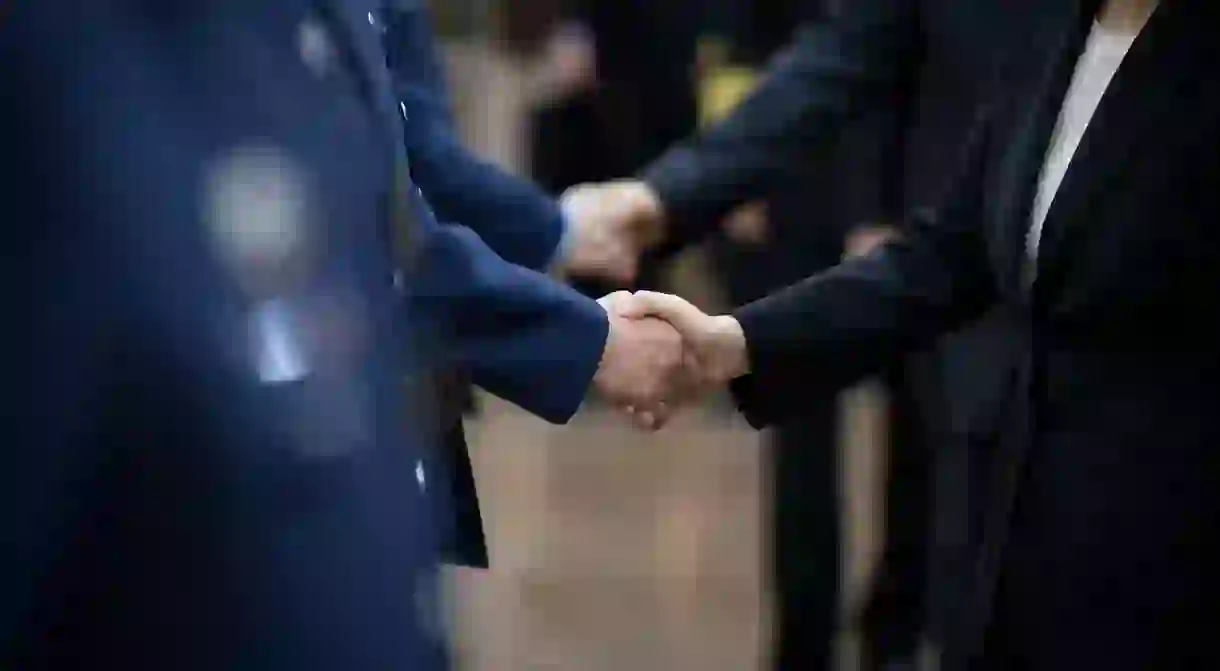How to Greet People in China

There is a wide range of greetings in China, from the extremely formal head bow to the casual “Have you eaten yet?” Know when to use which and everything in between.
Meeting anyone
As modern of a face as China likes to put on, Chinese society is still heavily dictated by Confucian tradition. That means that everyone in society has a place where he or she should remain. So when greeting someone, make sure to use that person’s correct title and always greet in order of seniority, with the most senior person in the room being at the head of the line. President Wang, for example, would be greeted first in most situations, and you would call him Wang Zongtong, or whichever title he prefers. Even those without a formal title should be greeted in most contexts according to their educational or professional qualifications. Medical practitioner Doctor Xia, then, would be greeted as Xia Yisheng, PhD candidate Dr. Liu would be Liu Boshi, and so forth.

Meeting the parents
But the rules get a bit more complicated as the nature of the relationship deepens. If you’re meeting your significant other’s parents for the first time, for instance, you must bring a gift that not only demonstrates your respect for your significant other’s family, but also shows that you have enough money to provide for your partner. If your partner comes from a wealthy background, you may have to save up for several months in order to give a gift deemed worthy. If your partner comes from more humble circumstances, then an appropriate gift would be something simple like a fruit basket or a souvenir from your own hometown. When receiving a gift from your significant other’s parents, always do so with both hands.

Meeting business partners
Please don’t be the fool who bows to a Chinese business partner. Bowing is traditional in Japan and Korea, but not in China. Instead, a firm handshake will do just fine. A hug or pat on the back is not acceptable, as many Chinese people are uncomfortable with physical affection. Often, even parents don’t hug their children, although this is changing as China becomes more international.

Meeting monks
The only time bowing is acceptable is when you’re greeting a Buddhist monk in the temple. But even then, a full bow is not necessary. Instead, place both hands over your heart and slightly bow your head in his direction.

Meeting friends
Most of the rules go out the window when you’re meeting a friend. Here, you can finally relax. It may be good to know, however, that greetings like “Ni hao“ are a bit stiff among close acquaintances. Instead, “Ni chi le ma?“, or “Have you eaten?”, is much more common.













